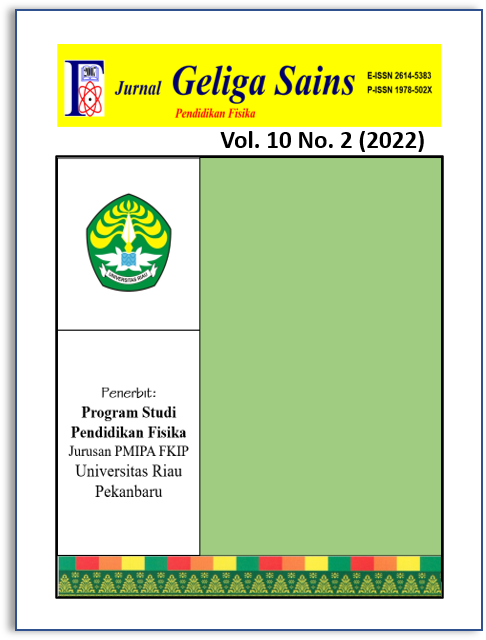Improving Understanding of the Concept of the Effect of Temperature on Fluid Flow Characteristics Through Experimental Methods for Engineering Students
Keywords:
experimental method, concept understanding, fluid flow characteristicsAbstract
This research is motivated by the high need for dynamic fluid concepts in the industrial world. to research the increased understanding of the concept of the influence of temperature on the characteristics of fluid flow which is part of the subject matter of fluid dynamics, an experimental module was prepared based on the optimization results of the appropriate physical quantities through testing of experimental instruments. The research aims to know the understanding the concept of the influence of temperature on the characteristics of fluid flow through experimental activities, to support the learning of dynamic fluid concepts for engineering students at the Bandung State Polytechnic. The research method uses quasi-experimental research, with experimental class learning treatment through theory and experimentation, while in the control class only through theory. To examine the effect of the experimental method on learning outcomes of conceptual understanding with 7 indicators using simple statistical analysis techniques. The results of the data analysis obtained an increase in understanding of the concept of the group of students who carried out experimental activities higher than the group of students who only received learning in theory class. The results of the normality test for the experimental class and control classes stated that the pre-test and post-test data were normally distributed. The results of the accumulated percentage of respondents' questionnaires, as many as 92.1% of respondents gave positive responses (strongly agreed and agreed) on quality and only 7.9% of respondents gave ordinary responses. Based on the average N-Gain, it was obtained that the experimental class had a greater N-Gain value than the control class, then based on the t-test, students' understanding of the concepts of the experimental class and the control class had a significant difference after being given treatment, it can be interpreted that the class that received experimental learning was more have a higher conceptual understanding.




